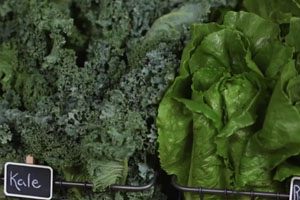
Leafy Green Growers Are Taking E. Coli Prevention Techniques. Like their counterparts in California, Arizona leafy green growers are taking steps to keep crops free of E. coli contamination. But like the precautions taken in California, the E. coli prevention techniques taken by Arizona growers are voluntary. While it is encouraging to see farmers […]

Leafy Green Growers Are Taking E. Coli Prevention Techniques. Like their counterparts in California, Arizona leafy green growers are taking steps to keep crops free of E. coli contamination. But like the precautions taken in California, the E. coli prevention techniques taken by Arizona growers are voluntary. While it is encouraging to see farmers taking the threat of E. coli contaminated crops seriously, many consumer advocates argue that mandatory safety measures enforced by federal regulators are the only way to keep E. coli tainted produce away from consumers.
According to a report in The Arizona Republic, growers in that state have been chopping down trees, bulldozing abandoned houses and even digging out cactuses. They are chasing away people who walk through their fields: those who help themselves to produce, children who take a shortcut to school and especially those who walk their dogs. The goal is to get rid of anything that can harbor birds, rodents or other animals and to keep people and their dirty shoes away from the produce. Keeping such animals away from fields can be an effective way of preventing their feces from contaminating crops with E. coli bacteria.
The impetus for this type activity was the September 2006 E. coli outbreak that was traced to Dole fresh bagged spinach grown in California. That outbreak sickened 200 people and killed three. Some analysts say that sales of fresh leafy greens have yet to recover from the 2006 E. coli outbreak. Obviously, produce growers want to re-instill confidence in their products.
Recently growers, shippers and processors in California’s Central Valley formed a safety group, and 118 companies have signed on to the California Leafy Green Handler Marketing Agreement. Safety precautions covered by the agreement include testing the water supply monthly for E. coli and keeping animals off farmland. Shippers who sign the pact promise to only work with growers who are signatories as well. According to The Arizona Republic, all major shippers in California have signed the agreement. About 40 shippers representing about 80 percent of the production in Arizona have signed an almost identical Arizona agreement.
But are voluntary agreements like the ones signed by growers in Arizona and California going to be enough to end the threat posed by E. coli tainted lettuce and other produce? Many consumer advocates say no. While a great deal of the leafy greens eaten by US consumers do come from these states, other states – even other countries like Mexico – provided a sizable portion of greens as well. The public can’t wait for all sources of leafy greens to agree to voluntary standards – rather, the federal regulators that oversee food safety should compose mandatory rules.
Whether or not this will ever happen remains to be seen. The US Department of Agriculture (USDA) is considering implementing a national version of those industry-developed standards that followed the E. coli outbreak and now govern California farmers and leafy green handlers. While the USDA is weighing both voluntary and mandatory standards, it has been reported that the agency favors a voluntary program that allows flexibility.
The personal injury attorneys at Parker Waichman LLP offer free, no-obligation case evaluations. For more information, fill out our online contact form or call 1-800-YOURLAWYER (1-800-968-7529).


